Facial Feminization Surgery (FFS) in Hungary
Search and Compare the Best Clinics and Doctors at the Lowest Prices for Facial Feminization Surgery (FFS) in Hungary

Find the best clinics for Facial Feminization Surgery (FFS) in Hungary
No clinics available
Thailand offers the best prices Worldwide
Price: $ 1,945

- Home
- Hungary
Compare Before & After Photos of _procedure_photos.phpFacial Feminization Surgery (FFS)
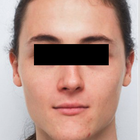
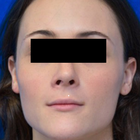
Front view
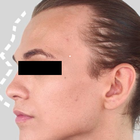
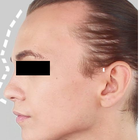
Half-side view
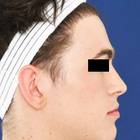
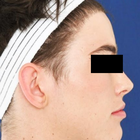
Full-side view
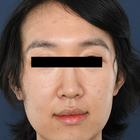
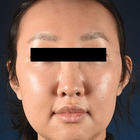
Front view
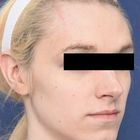
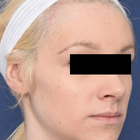
Half-side view
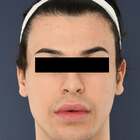
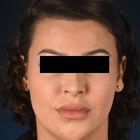
Front view
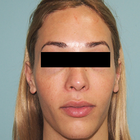
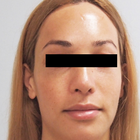
Front view
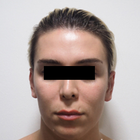

Front view
WHY US?
At Medijump, we're making medical easy. You can search, compare, discuss, and book your medical all in one place. We open the door to the best medical providers worldwide, saving you time and energy along the way, and it's all for FREE, no hidden fees, and no price markups guaranteed. So what are you waiting for?

Free

Best Price

Widest Selection

Risk-Free
What you need to know about Facial Feminization Surgery (FFS) in Hungary
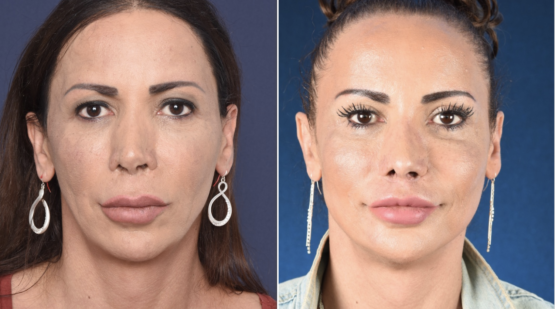
Facial Feminization Surgery, often abbreviated as FFS, is an extensive surgical process designed to modify masculine facial characteristics into a more feminine appearance. The procedure comprises several surgeries including rhinoplasty, forehead recontouring, and jaw and chin modifications. FFS is frequently sought after by transgender women desiring to more authentically express their gender identity. Any potential patient is advised to consult with a licensed surgeon to personalize the surgical plan according to their specific needs and aspirations.
Facial Feminization Surgery (FFS) usually necessitates an exhaustive pre-procedure assessment. This involves a thorough review of the patient's medical history, a complete physical examination, a psychological evaluation, and possibly facial x-rays. The surgeon will also discuss the aesthetic objectives, benefits, risks, and potential complications of the surgery with the patient. A collaborative decision-making approach is used to ensure patient safety and contentment following the procedure.
In this before and after example, the patient underwent Rhinoplasty, Chin recontouring, Jaw reduction, Lip lift, and eyelid surgery (blepharoplasty). The photo is taken 4 months post-op.
What is the cost of Facial Feminization Surgery (FFS) in Hungary?
Various elements such as the surgical complexity, hospital stays, anesthesiologist costs, and surgeon's fees influence Facial Feminization Surgery (FFS) pricing in Hungary. On average, possible charges vary from $20,000 up to $50,000. A detailed price breakdown from your healthcare provider will provide an exact view of the cost details.
The value of the procedure does not necessarily need to compromise the quality and standards of the surgery. Gain clarity about what components are inclusive and exclusive in the overall cost to understand thoroughly what your payment encompasses. Insurance firms usually do not cover aesthetic procedures, hence comprehensive knowledge and prudent financial preparation will streamline the procedure and make the Facial Feminization Surgery (FFS) a valid investment in enhancing your self-perception and assurance.
What does a Facial Feminization Surgery (FFS) Procedure Involve?
Facial Feminization Surgery (FFS) entails a range of tailored techniques aimed at personal needs with a focus on feminizing and gently modifying the facial structure. These techniques may encompass forehead reshaping, adjustments to the jaw and chin, rhinoplasty, facelifts, and other unique enhancements. The rising trend in health and well-being-oriented medical research is mirrored in personalized surgery schemes, ensuring the outcomes are attuned to individuals.
Normally, a care center will execute an in-depth consultation process to comprehend your aesthetic aspirations and draft a surgical blueprint. This evaluation is essential in harnessing the maximum advantages from the Facial Feminization Surgery (FFS). Ensuring the health and safety of the patient, a pre-operative assessment, encompassing a review of physical health and mental well-being, is a crucial measure.
How Long Should I Stay in Hungary for a Facial Feminization Surgery (FFS) Procedure?
During the planning phase for Facial Feminization Surgery (FFS), considering the necessary time for the operation and subsequent recovery is vital, in order to ensure a seamless return to standard duties. The length of your Hungary visit is heavily influenced by the surgery’s intricacy, your personal health condition, and your recovery speed. Generally, a timeframe of one to two weeks is advised before getting back to everyday activities.
However, the precise timeline can differ considerably, with follow-up meetings commonly arranged during your stay. These are paramount for evaluating your progress and identifying any possible surgical complications. This window also presents a chance for practising respiratory exercises and other preventive health methods to expedite a seamless recovery. Adherence to all the instructions given by your surgeon during this term is critical, as this significantly influences the success rate of the Facial Feminization Surgery (FFS).
What's the Recovery Time for Facial Feminization Surgery (FFS) Procedures in Hungary?
Recovery from Facial Feminization Surgery (FFS) can differ among individuals, largely depending on the procedure's scope and the patient's overall health. Usually, patients require approximately six weeks of recuperation before they can engage in strenuous activities. During this time, individuals may experience swelling, bruising, and discomfort related to the surgery, but these symptoms typically diminish over time.
Getting plenty of rest, maintaining adequate hydration, and consuming a balanced diet can aid in accelerating recovery. It's vital to strictly follow the healthcare provider's advice regarding prescribed medicines, care of surgical wounds, and limitations on activities to prevent complications and promote healing. Keep in mind that health and well-being extend beyond the surgical procedure itself, so comprehensive aftercare is essential for successful outcomes.
What sort of Aftercare is Required for Facial Feminization Surgery (FFS) Procedures in Hungary?
Appropriate aftercare is a vital component of successful Facial Feminization Surgery (FFS) and significantly influences the recovery process. It may include prescribed medications, regular medical check-ups, custom-made nutrition plans, and effective weight management. The recovery phase could span several weeks, during which adequate rest is paramount for a seamless recuperation.
Patients are often advised by their surgeons to temporarily abstain from rigorous physical activities and to maintain a healthy lifestyle. The latter should incorporate balanced nutrition, staying hydrated, taking supplements, and ensuring proper sleep and mental health management. It's important to note that adherence to the prescribed aftercare plan and attendance at follow-up visits are key to tracking improvements and promptly addressing any potential complications.
What's the Success Rate of Facial Feminization Surgery (FFS) Procedures in Hungary?
Facial Feminization Surgery (FFS) is recognized as an extremely successful surgery that produces transformative and enduring outcomes. The success rate fluctuates depending on various factors, including the proficiency of the surgeon, the overall health of the patient, and the quality of care after the surgery. A majority of patients report high levels of satisfaction, citing increased self-confidence and an enhanced quality of life.
It's important to understand, however, that despite its high success rate, the procedure isn't without potential risks and complications. Complications like infections, scarring, and dissatisfaction with the aesthetic outcome are potential, though they are rare occurrences. Thorough pre-operative evaluations, skilled surgical hands, and comprehensive post-operative care significantly lessen these risks. Consequently, when selecting the most suitable protocol for your Facial Feminization Surgery (FFS), the guiding factors should be patient safety and satisfaction.
Check out this video for before and after images of FFS patients, you'll be amazed by some of the results made possible by this surgical procedure.
Are there Alternatives to Facial Feminization Surgery (FFS) Procedures in Hungary?
Bear in mind that each person's needs and preferences are distinct, and surgical interventions might not be the most suitable route for everyone. There are other alternatives available for those who might be more inclined towards non-surgical solutions. Aesthetic treatments like injectable fillers, Botox, and others can simulate some effects of the Facial Feminization Surgery (FFS) on a temporary basis. However, cosmetic treatments of this kind typically necessitate ongoing sessions to preserve the sought after result.
Furthermore, some individuals might prefer to engage in psychological or behavioral therapies that encourage self-acceptance and a positive body image. Such therapies address the mental health components of self-image and gender dysphoria, offering a different perspective to surgery. Having open-ended discussions with healthcare providers to explore all the available options prior to making a decision is strongly advised.
What Should You Expect Before and After the Facial Feminization Surgery (FFS)?
Prior to undertaking Facial Feminization Surgery (FFS), patients participate in an in-depth consultation process. During this stage, surgeons evaluate the individual's health status, expectations, and motivations to design a treatment program that best meets their needs. Various health screenings may be conducted to verify the patient's physical suitability for the operation.
Post-procedure, initial weeks may bring about some degree of discomfort, swelling, and bruising, which will progressively decrease. Adequate post-procedure care can significantly improve recovery and the ultimate outcome of your Facial Feminization Surgery (FFS). It's crucial to maintain regular communication with your surgeon and promptly report any unusual symptoms. The goal is to ensure a successful surgical procedure followed by a rapid and smooth recovery, guiding you towards a more self-assured version of yourself.
What is the Preoperative Preparation for Facial Feminization Surgery (FFS) in Hungary?
Preparing for Facial Feminization Surgery (FFS) entails addressing both physical and mental aspects to ensure successful surgery and recuperation. Patients undergo comprehensive evaluations involving various diagnostic tests to determine their overall health and suitability for the surgery. Moreover, patients may need to halt tobacco use, moderate alcohol consumption, and adjust certain medications—especially those affecting blood clotting—as these factors could disrupt both the surgical process and healing.
In addition, therapy sessions may be suggested to assist individuals in managing the psychological implications of such a life-changing procedure. A balanced diet is also pivotal in enhancing the body's healing capacity; adopting a healthy eating regimen, such as the Mediterranean diet, and considering suitable nutritional supplements can optimize preoperative preparation. Emphasizing mental wellbeing is another vital aspect of the journey, and implementing stress management strategies can prove beneficial during this period.
What are the Long-term Implications of Facial Feminization Surgery (FFS) in Hungary?
Facial Feminization Surgery (FFS) is often viewed as a long-term commitment that yields lasting and significant transformations. It significantly enhances self-image and self-confidence, leading to a substantial improvement in life quality. Though the changes induced by the surgery are generally unchanging, sustaining a consistent weight and adopting a healthy lifestyle are vital in preserving the results.
It's important to bear in mind that adjusting psychologically is an integral aspect of such a transformative experience. Individual or group therapies can aid in navigating these changes, fostering deep-seated growth and self-understanding following the Facial Feminization Surgery (FFS). Always remember, the success of a procedure goes beyond the physical alteration—it also involves overall wellbeing, health, and a positive life perspective.
Whilst the information presented here has been accurately sourced and verified by a medical professional for its accuracy, it is still advised to consult with your doctor before pursuing a medical treatment at one of the listed medical providers
No Time?
Tell us what you're looking for and we'll reachout to the top clinics all at once
Enquire Now

Popular Procedures in Hungary
Prices Start From $96

Prices Start From $111

Prices Start From $70

Prices Start From $16

Prices Start From $220

Prices Start From $28

Prices Start From $672

Prices Start From $275

Prices Start From $101

Prices Start From $556

Prices Start From $4,377

Recommended Medical Centers in Hungary for procedures similar to Facial Feminization Surgery (FFS)

- Interpreter services
- Translation service
- Religious facilities
- Medical records transfer
- Medical travel insurance
- Health insurance coordination
- TV in the room
- Safe in the room
- Phone in the room
- Private rooms for patients available

- Interpreter services
- Translation service
- Religious facilities
- Medical records transfer
- Medical travel insurance
- Health insurance coordination
- TV in the room
- Safe in the room
- Phone in the room
- Private rooms for patients available

- Interpreter services
- Translation service
- Religious facilities
- Medical records transfer
- Medical travel insurance
- Health insurance coordination
- TV in the room
- Safe in the room
- Phone in the room
- Private rooms for patients available

- Interpreter services
- Translation service
- Religious facilities
- Medical records transfer
- Medical travel insurance
- Health insurance coordination
- TV in the room
- Safe in the room
- Phone in the room
- Private rooms for patients available

- Interpreter services
- Translation service
- Religious facilities
- Medical records transfer
- Medical travel insurance
- Health insurance coordination
- TV in the room
- Safe in the room
- Phone in the room
- Private rooms for patients available

- Interpreter services
- Translation service
- Religious facilities
- Medical records transfer
- Medical travel insurance
- Health insurance coordination
- TV in the room
- Safe in the room
- Phone in the room
- Private rooms for patients available

- Interpreter services
- Translation service
- Religious facilities
- Medical records transfer
- Medical travel insurance
- Health insurance coordination
- TV in the room
- Safe in the room
- Phone in the room
- Private rooms for patients available

- Interpreter services
- Translation service
- Religious facilities
- Medical records transfer
- Medical travel insurance
- Health insurance coordination
- TV in the room
- Safe in the room
- Phone in the room
- Private rooms for patients available

- Interpreter services
- Translation service
- Religious facilities
- Medical records transfer
- Medical travel insurance
- Health insurance coordination
- TV in the room
- Safe in the room
- Phone in the room
- Private rooms for patients available

- Interpreter services
- Translation service
- Religious facilities
- Medical records transfer
- Medical travel insurance
- Health insurance coordination
- TV in the room
- Safe in the room
- Phone in the room
- Private rooms for patients available
Facial Feminization Surgery (FFS) in and around Hungary
About Hungary
Positioned in the core of Central Europe and completely surrounded by land, this historically enriched nation is among the world's top 15 tourist favorites. It's a hotspot teeming with UNESCO World Heritage sites, a testament to its rich past.
The country boasts eye-catching architectural marvels and relaxing thermal baths and spas, the most talked-about amongst these being the Szechenyi baths nestled in the nation's capital, Budapest. This combination of cultural heritage and relaxation opportunities lends the country a unique charm that continually lures in visitors from around the globe.
While Hungary possesses only one facility accredited by the Joint Commission International, it leans on the trusted expertise of its local accreditation board. This board, licensed by pillars of authority such as the Hungarian Ministry of Health and the State National Health Commission and Medical Service, ensures the maintenance of high healthcare standards.
Each year sees a burgeoning number of medical tourists making the journey to Hungary. Many among them travel specifically for Facial Feminization Surgery (FFS) procedures. Dental and cosmetic treatments, in particular, draw significant attention due to Hungary’s competitive pricing, often regarded as the most economical across Europe.
Popular Parts of Hungary
With less than 10 million inhabitants sprinkled across an approximate area of 93,030 square kilometers, Hungary may appear relatively modest in size. However, within its boundaries, it hosts an impressive number of UNESCO World Heritage Sites. Alongside these acclaimed landmarks, it also boasts a multitude of exquisite attractions, making it a country that belies its physical size with its magnificently rich offerings.
- Budapest is the capital of Hungary. From beautiful boulevards, extraordinary architectures, an abundance of hot springs, to sophisticated food and an electric nightlife. Budapest has everything to satisfy everyone. Castle Hill is one of the most visited places in Budapest with beautiful buildings dating back to the 14th and 15th centuries.
- Eger is known for its castle, historic buildings, and thermal baths and also for its red wine. There are many festivals and celebrations centered around wine and remember to enjoy the wine-tasting when visiting Eger.
- Debrecen is an important city in Hungarian Protestantism. The city has many religious sites and museums. Tourists should visit the Great Church, St. Anne Cathedral, and the Deri Museum. Debrecen also has a lot of bars and nightclubs.
- Siofok is located at the southern coast of Lake Balaton. The small town also has beautiful beaches, making it one of the most popular summer holiday destinations. The town has many entertainment options, tourists can spend a lovely day on the beach next to Lake Balaton or enjoy the food in beachside bars and restaurants.
- Szeged is known as ‘The City of Sunshine’ because it has wonderful weather. The city offers beautiful parks, cultural scenes, and amazing street side cafes. Szeged has a youthful vibe as it is a university town. In the summer, there are many festivals such as the Open Air Theater festival.
Weather and Climate in Hungary
Hungary is characterized by the presence of four clearly demarcated seasons.
- Hungarian summers, spanning from June to August, are typically warm and agreeable, with average temperatures oscillating between 23 to 28°C (73 – 82°F). However, mercury levels can sometimes soar as high as 35°C (95°F). Tourists are advised to opt for lightweight clothing during this period. This season generally sees a tourism surge in Hungary.
- Both spring and autumn showcase milder, comfortable temperatures. Spring, in particular, is a splendid time to visit Hungary as the country's parks and fields burst into vibrant, full bloom.
- Winter presents a stark contrast with severely cold conditions. Average temperatures fall within -3 to -7°C (27 to 19°F), and can plummet to lows of -10°C (14°F). While rural areas may not be very visitor-friendly during this time, the more prominent cities continue to offer an enjoyable experience despite the cold.
Getting Around in Hungary
Hungary has five large airports, but international flights usually land at Ferenc Liszt International Airport. The airport is still commonly called “Ferihegy.” It offers international connections mainly to Europe, Africa, the Middle East, and North America. Several budget airlines such as Wizz Air, EasyJet, and Ryanair operate many flights from this airport. Flights to/from Schengen countries use Terminal 2A (also known as the Schengen terminal), while flights from non-Schengen countries use Terminal 2B. Another year-round international airport is Debrecen International Airport. The airport serves Wizz Air and Lufthansa along with several seasonal airlines. There aren’t many domestic flights in Hungary because traveling to one city to another usually only takes three hours by train or bus.
Visitors can get into the city from the airports by bus or taxi. If you wish to travel by taxi, make sure to use regulated taxis such as Főtaxi, the company has trained and experienced drivers to ensure passengers’ safety. The fare is 300 HUF/Km (1.03 USD). A ride to Budapest from Ferenc Liszt International Airport should cost around 7200 HUF (24.8 USD).
Buses are another easy option to get to the city center. Bus tickets are relatively cheap, single tickets are 350 HUF (1.30 USD) and can be purchased at the airport post office, BKK customer points in arrivals halls, the newsagents, and from the ticket machine at the bus stops. Drivers also sell tickets for 450 HUF (1.60 USD). It is recommended to buy daily or multi-day travel-cards and passes which are valid for an unlimited number of trips within their validity periods. The multi-day pass costs 1650 HUF (6.15 USD)
Hungary has a highly developed transport system. To travel to another city, tourists can use Intercity (IC), the fastest trains that link major cities with Budapest. Buses are a more economical way to travel inter-city. Buses are efficient. Tickets can be purchased from the bus driver. Taxis are good, but make sure to always inspect the change that taxi drivers give you. Drivers commonly give tourists outdated Romanian currency that looks similar to Hungarian currency but has no value. Hiring a car is another good option if you want to travel to many destinations, most roads are two lanes and the main roads are in good shape.
Tourist Visas in Hungary
European Union, American, and Canadian passport holders can stay in Hungary without a visa for up to 90 days, as long as the passport is valid for at least three months. Citizens of EU/EEA member and 33 countries are granted visa-free entry for a maximum period of 90 days.
Hungary is also a part of the Schengen Agreement. The Schengen Visa allows the holder to travel to any member countries using one single visa. The Schengen Visa is only issued to citizens of countries who are required to obtain a visa before entering Europe. For more information:
- Visitors to Hungary must have a valid passport and proof of onward travel.
- It is recommended to have travel insurance, as it is not required by law but can be very helpful in case of an emergency.
- Visitors to Hungary should be aware of the country's currency, the Hungarian forint (HUF). The exchange rate for the Hungarian forint fluctuates daily, but it is currently trading at around 350 HUF to the US dollar.
- Most businesses and establishments in Hungary accept credit cards and debit cards. However, it is always a good idea to have some cash on hand, especially for smaller purchases and for tipping.
Additional Information
- Local Currency: Although the Hungarian government wants to use the Euro as Hungary’s currency, the official currency is still Hungarian Forint (HUF). 1 USD is equivalent to 362.80 HUF.
- Money & Payments: ATMs are easily available within the country. Hotels, shops, and restaurants accept credit cards, especially, MasterCard, Visa, and American Express. Several taxis in Budapest also accept credit cards. Many hotels and guesthouses that give their rates in euros will accept payment with euros or forint. Tipping is not mandatory but will be appreciated.
- Local Language: The official language is Hungarian. English is widely taught in schools and universities, so many young people can speak very good English. German is almost as widely spoken as English.
- Local Culture and Religion: More than half of the population follows Christianity as it is a historically Christian country. Jewish, Buddhist, and Muslim are freely practiced and are in the minority.
- Public Holidays: Hungary celebrates Christian holy days. The country hosts many annual festivals such as Hollókő Easter Festival, Busójárás, and Balaton Festival. Note that on national and public holidays, most businesses including shops and restaurants are closed. Public transportations also run less frequently.
With its stunning landscapes, laden with history and soaked in culture, Hungary truly is a gem to behold. Brimming with a myriad of delights to cater to diverse preferences, it offers everything from captivating landscapes and historical marvels to lively metropolises teeming with life, and a wealth of culinary delights. Indeed, Hungary ensures every visitor takes away an indelible wealth of wonderful memories.
Popular Searches
- Plastic Surgery in Thailand
- Dental Implants in Thailand
- Hair Transplant in Thailand
- Breast Augmentation Thailand
- Gastric Sleeve in Thailand
- Gender Reassignment Surgery in Thailand
- Laser Hair Removal in Bangkok
- Botox in Bangkok
- Dermatology in Bangkok
- Breast Augmentation in Bangkok
- Coolsculpting in Bangkok
- Veneers in Turkey
- Hair Transplant in Turkey
- Rhinoplasty in Turkey
- Stem Cell Therapy in Mexico
- Rhinoplasty in Mexico
- Liposuction in Mexico
- Coolsculpting in Tijuana
- Rhinoplasty in Korea
- Scar Removal in Korea
- Gastric Sleeve in Turkey
- Bone Marrow Transplant in India
- Invisalign in Malaysia
- Plastic Surgery in the Dominican Republic
- Tummy Tuck in the Dominican Republic
- Plastic and Cosmetic Surgery in Poland
- Rhinoplasty in Poland
- Hair Implant in Poland
- Dental Implants in Poland
- IVF in Turkey